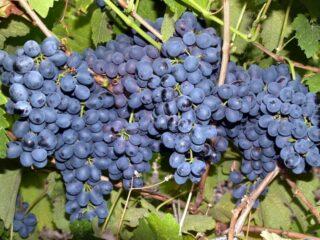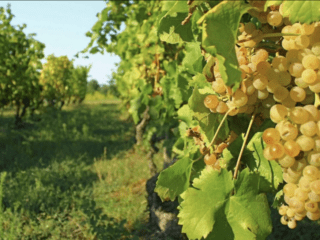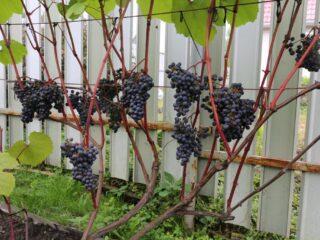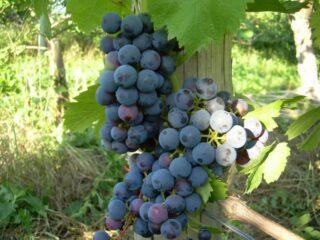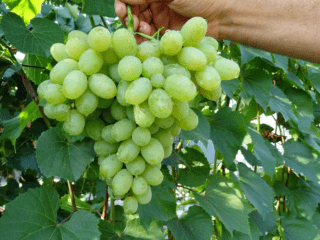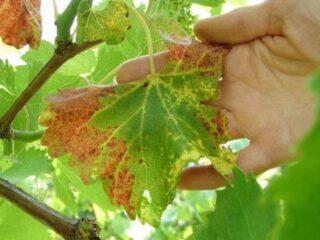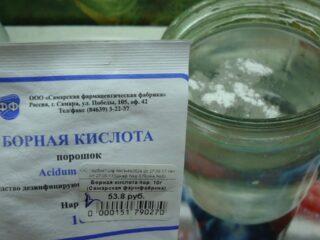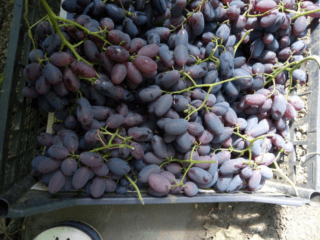Content
Despite the wide range of chemicals, many gardeners prefer to use iron sulfate for grapes. After all, this time-tested remedy helps to successfully fight many crop diseases and allows you to get a good harvest at minimal cost. But in order for the use of iron sulfate to bring maximum benefit to the grapes, you need to know how to use it correctly. This will help you avoid serious mistakes.
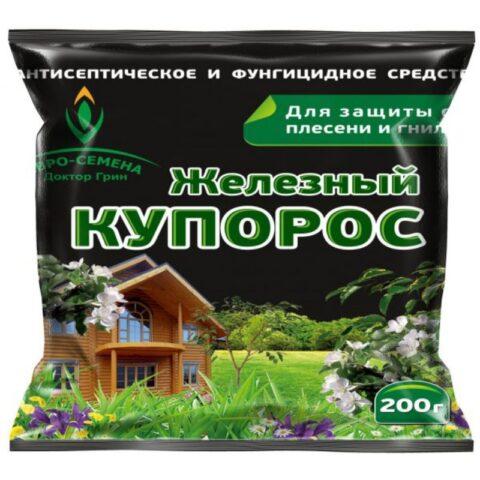
Other names for iron sulfate are ferrous sulfate, ferrous sulfate
Is it possible to treat grapes with iron sulfate?
The product is a crystallized substance with a blue or greenish tint. It contains the microelement iron of about 47-53%.
This product is not only possible, but also necessary to process grapes. After all, it has fungicidal and antiseptic properties and does not cause addiction to pathogenic microflora. This makes it possible to treat the vineyard with iron sulfate several times a season.
Beneficial features:
- suitable for the treatment and prevention of diseases;
- eliminates iron deficiency, which prevents the development of chlorosis;
- strengthens the immune system;
- increases resistance to temperature changes;
- does not accumulate in fruits or soil;
- safe for humans, beneficial insects, animals;
- not phytotoxic.
Why spray grapes with iron sulfate?
Regular use of this product when growing grapes helps solve many problems. It is suitable for feeding, treating wounds and cracks, protecting against diseases and spring return frosts, as well as for combating lichens and moss. But in each specific case there are some features of its application.
Top dressing
If there is a lack of iron in the soil, grapes suffer from chlorosis. It appears as a light shade of foliage, on which dark veins are clearly visible. In this case, the process of photosynthesis is disrupted, which negatively affects the development of the crop. If the disease is not treated, then you should not count on a good harvest.
Iron sulfate helps eliminate the problem. But in order to increase the plant’s absorption of the missing component, it is necessary to convert it into a chelate form. In this case, experienced gardeners recommend collecting 3 liters of warm water in a container and adding 1 tsp to it. citric acid and 1 tbsp. l.iron sulfate, mix thoroughly. After this, water the grapes with the solution.
Against diseases and pests
This product helps to successfully fight fungal diseases of the crop. In this case, it is recommended to use a highly concentrated solution of 5%. Treatment can be carried out before the beginning of the growing season or after it ends.
Iron sulfate is effective against:
- Alternaria;
- clusterosoporiosis;
- black cancer;
- anthracnose;
- coccomycosis;
- scab;
- septoria;
- gray rot;
- late blight;
- oidium.
This product also helps fight wintering crop pests. To do this, it is recommended to use a solution of increased concentration. The vine should be sprayed before the buds open.
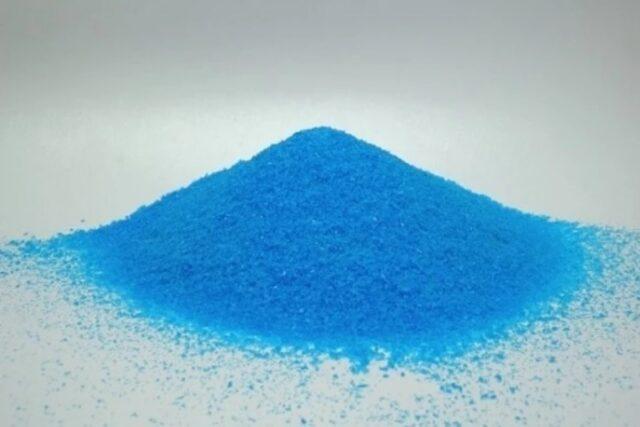
It is unacceptable to use drugs against viral and bacterial diseases
Disinfection of wounds and cracks
After pruning, as well as during temperature changes on the shoots of the plant, the integrity of the bark cover is disrupted. This increases the likelihood of pathogenic microorganisms entering open wounds. The use of iron sulfate in this case allows you to create a protective film that will help prevent this.
To do this you need to use a 1% solution of the product. It should be applied with a brush to thoroughly treat problem areas.
Treatment of grape cuttings with iron sulfate
Iron sulfate is also beneficial when processing cuttings. Before planting bushes, it is recommended to spray the upper part of the shoots with a solution of this product at a concentration of 0.5-1%. This treatment allows you to slow down the process of bud break by two weeks.During this time, the cuttings will be able to form young roots. This allows you to increase the survival rate of seedlings and their immunity.
Gardeners also use this feature of the product to protect crops from spring return frosts. If there is a threat of a sharp temperature change, it is recommended to spray the vine in advance. This will prevent kidney damage.
From mosses and lichens
When mosses and lichens appear on the vine, it is also recommended to use iron sulfate. In this case, a 3-5% solution should be used in early spring or late autumn. This treatment promotes the death of growths within three hours after it is carried out.
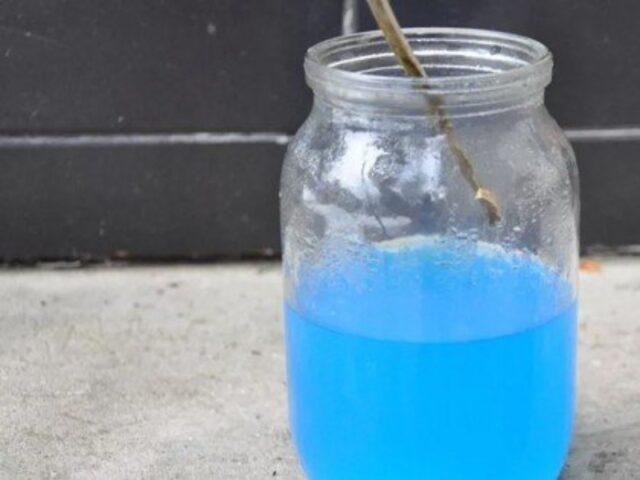
Iron sulfate cannot be combined with lime and copper sulfate
How to dilute iron sulfate for processing grapes
To use iron sulfate to treat grapes, you must first dilute it with warm water in the correct dosage. Depending on the purpose of application, the concentration of the working fluid may vary.
Iron sulfate should be diluted for processing grapes immediately before use, since the finished product remains active for no more than six hours.
You can prepare the working fluid in plastic or glass containers to prevent a chemical reaction. This product has a high acid content. To prevent treatment with it from causing burns on the plant, every gardener should know how to dilute it correctly.
Possible applications:
- 1% solution. To prepare it, you need to dilute 100 g of the component initially in a small volume of water. And then bring the total amount of liquid to 10 liters.
- 3% solution.To prepare a working fluid in this concentration, you need to dissolve 300 g of the component in 1 liter of water, and then bring its total volume to 10 liters. After this, the product must be thoroughly stirred and left for half an hour.
- 5% solution. To prepare the working fluid, you need to dilute 500 g of the substance in 2 liters of warm water and mix thoroughly. Then bring the volume of liquid to 10 liters and leave for 30 minutes.
It is very important to strictly adhere to the required dosage. Exceeding the concentration of the working solution causes burns of leaves, buds, and shoots.
When to spray grapes with iron sulfate
This product can be used in early spring or late autumn. In this case, it is important that the plant has not yet entered into the growing season or has completed it. Therefore, it is necessary to take into account some features of the processing.
Spraying grapes with iron sulfate in spring
The use of this product in early spring is recommended for the treatment and prevention of diseases, protection from frost, inhibition of the development of mosses and lichens, elimination of iron deficiency that causes chlorosis, as well as protection of crops from pests.
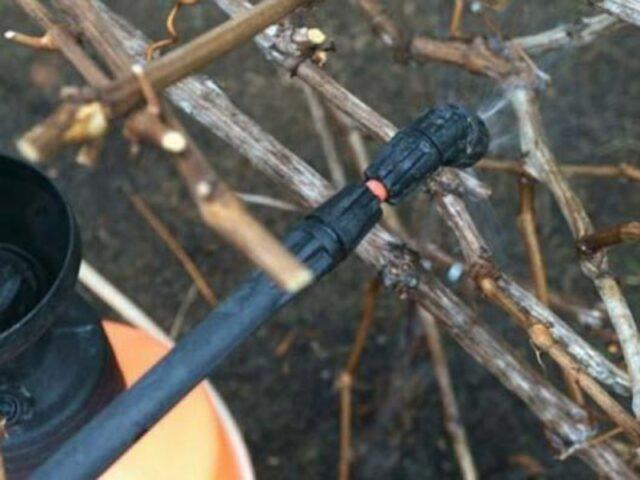
You can spray the vine with this product at a temperature of +3-7 °C
When using iron sulfate as a fungicide and insecticide, you need to use a solution with a concentration of 3-5%. The resulting product should be used to treat the vine in dry, windless weather. The solution must be sprayed evenly onto the shoots so that after it dries, a protective film is formed on the surface of the bark, suppressing the growth of fungi and sporulation, as well as the development of pest larvae.
To prevent the development of chlorosis and kidney damage from frost, a solution of iron sulfate should be used in a concentration of 0.5-1%. In the first case, you need not only to spray the bark, but also to water the plant.
Autumn treatment of grapes with iron sulfate before covering
Processing grapes in the fall is necessary to prepare them for wintering. The procedure helps to increase the immunity of the crop, and also destroys wintering pathogens and pest larvae.
It is recommended to use iron sulfate in the fall after leaf fall, when the grape shoots are completely bare. But it is important that the air temperature does not drop to 0 °C or lower. Experienced gardeners recommend processing at the end of October, at the beginning of November, depending on the climatic conditions of the region.
To spray grapes with iron sulfate in the fall, prepare a solution in the proportion of 300-500 g per 10 liters of water. In this case, the concentration for young seedlings should be lower than for adult plants.
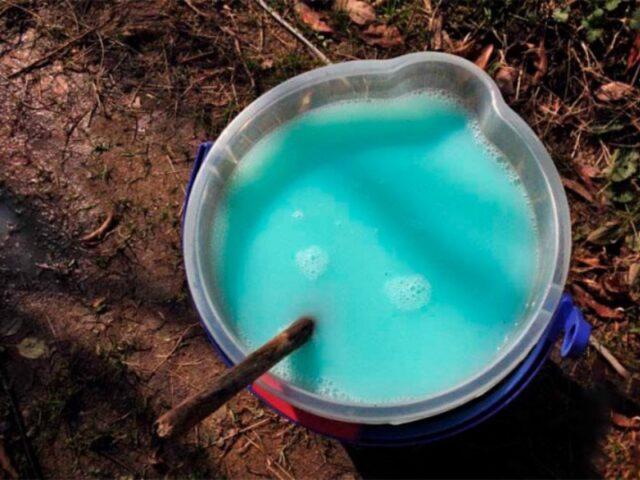
Iron sulfate is washed away by rain
Safety precautions
If you use iron sulfate in accordance with the instructions for use, it does not pose a danger to human health. However, standard precautions must be followed.
Before preparing the working solution and spraying crops, you need to put on gloves, a mask and goggles, as well as clothes and shoes that cover exposed areas of the body as much as possible. If the product gets on the skin or mucous membranes, rinse off with running water. During the treatment it is forbidden to drink, smoke, or eat.
The drug can be harmful to human health if it enters the food tract, causing poisoning.In this case, you need to take an absorbent and consult a doctor.
Common mistakes
When using iron sulfate, some novice gardeners ignore the rules for its use. As a result, the product causes harm to the culture instead of benefit. This not only negatively affects the yield of grapes, but can also cause its death.
Common mistakes:
- Ignoring processing deadlines. Do not spray grapes with the product after bud break, during the flowering period. This causes burns.
- If it is necessary to use the drug in the summer, apply the solution only to the affected areas of the vine.
- Phosphorus-containing products and other plant protection preparations can be used only two weeks after treatment with iron sulfate.
- It is necessary to strictly adhere to the dosage indicated in the instructions. Its excess harms the plant and weakens it, and a low concentration is useless.
- It is necessary to spray grapes in the fall with the preparation only when removing plant residues from the soil, otherwise the procedure will not give the desired result.
Conclusion
Iron sulfate for grapes is beneficial if used correctly. Therefore, before using the drug, you need to read the instructions. Only in this case the effectiveness of the product will be maximum, which guarantees a good harvest at the end of the season.
